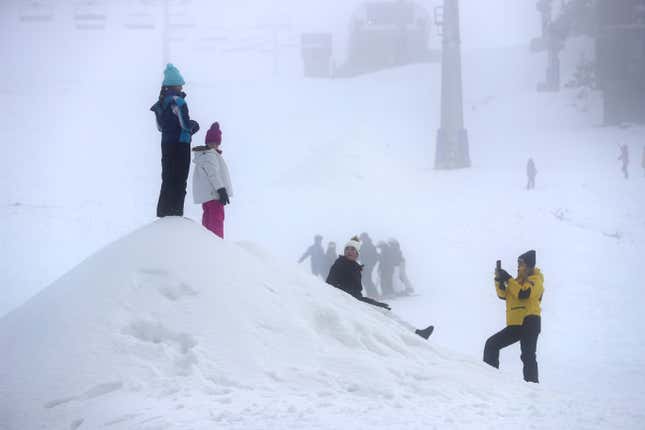Kids Have It Hard Enough, Don't Take Away Snow Days
Latest

It is obvious to anyone with eyeballs that the pandemic has wreaked havoc on everyone and everything in various ways, and that because of it, many sacred and long-held traditions and institutions are changing. New York City is leading the charge in what I hope is not standard for other snowy states: Snow days are cancelled for the 2022 school year, to be replaced with remote learning.
This applies strictly to kids in the New York City school district, and as NBC 4 New York notes, they were relatively rare. But it’s a tradition treasured by kids—a beautiful day of freedom to do stuff like harass their parents a little bit and then go outside and make snow angels or try to bury their little sister in a snowbank. Now, snow days in New York City will be replaced by remote learning, which means that the small spots of reprieve that allowed children to be children will be filled by obligation.
-

-

-

-

-

-

-

-

-

-

-

-

-

-

-

-

-

-

-

-

-

-

-

-

-

-

-

-

-

-

-

-

-

-

-

-

-

-

-

-








































